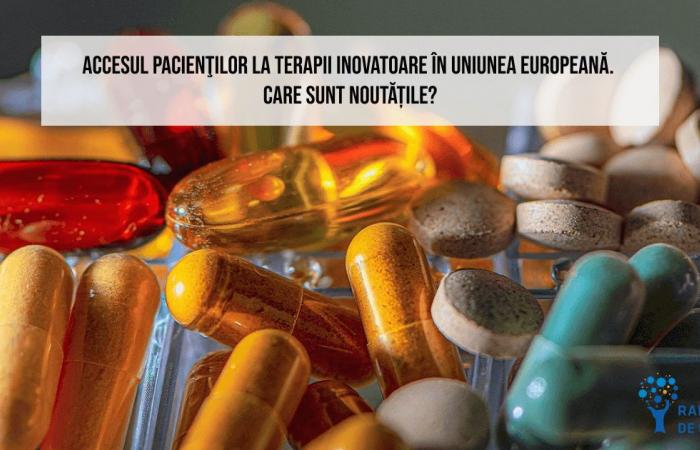EMA (European Medicines Agency) is the European Union agency responsible for the scientific evaluation, supervision and monitoring of the safety of medicines. A number of committees operate within it, the main role in the authorization of medicines for human use returning CHMP (Committee for Medicinal Products for Human Use).
The CHMP meets once a month to assess marketing authorization applications through a centralized procedure, recommending or not marketing each drug under review. Find out more: The year 2023 from the perspective of patient access to innovative therapies in the European Union. What are the drugs approved in the first trimester of the EMA?

The main news from the first quarter of 2024:
As expected, in February the European Commission granted marketing authorization for Casgevy (exagamglogene autotemcel, exa-cel), the only genetic therapy that has been approved in the European Union for patients with sickle cell anemia and beta-thalassemia. The therapy ensures the production of fetal hemoglobin through CRISPR/Cas9 technology, causing the resolution of severe symptoms after a single administration.
Casgevy can eliminate disabling pain attacks in people with sickle cell disease, as well as the need for chronic blood transfusions in patients with beta-thalassemia. The therapy was designed for a single lifetime administration. Because CRISPR edits DNA at the stem cell level, Casgevy’s effect could, in theory, last a lifetime. Learn more about Casgevy here: HISTORIC. UK approves first CRISPR-based gene editing therapy for sickle cell anemia and β-thalassemia.
RNA-based therapy for patients with amyotrophic lateral sclerosis
Amyotrophic lateral sclerosis (ALS) is a severe and difficult disease to treat. It causes progressive damage to the nerve fibers that control voluntary movements, until it is reached paralysis, including the respiratory muscles, which ultimately causes respiratory failure. Average survival with ALS is 2-5 years. In 2% of patients, the disease is caused by mutations in the SOD1 enzyme, which result in neuronal death. Currently there is only one drug authorized in the European Union for ALS patients – riluzole.
The CHMP recommended marketing authorization for Qalsody in Februaryan antisense oligonucleotide that binds to messenger RNA which contains the information transcribed based on the SOD1 gene. Following this hybridization, the synthesis of defective SOD1 proteins is blocked, ameliorating the symptoms of ALS.
Qalsody was evaluated in a randomized clinical trial involving more than 100 ALS patients positive for SOD-1 gene mutations. Patients were randomly divided into two groups (2:1) to receive either Qalsody or placebo for 24 weeks. Axonal damage was assessed by measuring plasma neurofilament light chain (NfL). In patients receiving Qalsody, NfL levels decreased by approximately 60% compared to the control group. The investigational therapy also improved the physical capacity of the patients.
Also in February, the CHMP offered positive opinion for approval of Voydeythe first oral treatment for anemia residual in patients with paroxysmal nocturnal hemoglobinuria. You can find out more about the recommendations made by the CHMP in February here.

The fight against antibiotic-resistant pathogens continues
Infections caused by Gram negative bacteria resistant to antibiotics are a serious public health problem, being the cause of approximately 35,000 deaths per year in the European Union. In March, The CHMP recommended the authorization of Emblaveo, containing aztreonam and avibactam, for use in patients with complicated intra-abdominal and urinary tract infections, hospital-acquired pneumonia and other infections caused by aerobic Gram-negative bacteria for which therapeutic options are limited. You can read about the conclusions of the March CHMP meeting here.
Because of its clinical benefits and the urgency of the problem of antibiotic-resistant bacteria, Emblaveo was quickly approved by the European Commission, within one month of the CHMP recommendation. Its effectiveness has been demonstrated in phase III clinical trials REVISITED and ASSEMBLY. Aztreonam is an antibiotic with a beta-lactam monobactam structure, and avibactam is a beta-lactamase inhibitor. Beta-lactamases are enzymes produced by bacteria resistant to antibiotics from the beta-lactam class. Avibactam restores the activity of aztreonam against pathogens that produce various types of beta-lactamases associated with severe and difficult-to-treat infections.

Also in January, the CHMP gave a positive opinion for Exblifep authorization (cefepime-enmetazobactam), indicated for urinary tract infections and pneumonia acquired following hospitalization. The European Commission followed the CHMP recommendation, so the new therapy became available in the European Union. You can find out more about the CHMP meeting in January here.










